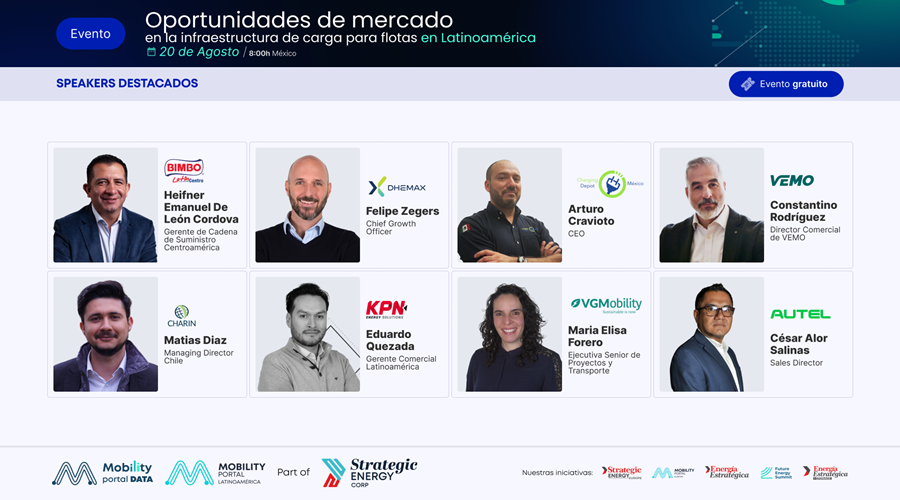During the event — organised by Mobility Portal Latinoamérica and Mobility Portal Data — executives and experts from the regional eMobility ecosystem shared case studies, announcements, and lessons learned that forecast the 2025-2026 roadmap.
The focus? Real opportunities for electric fleets and charging infrastructure in Latin America, experiences with depots, procurement, standardisation, and trends in smart charging applied to fleet operations.
Below are the key takeaways from the latest Mobility Portal Latinoamérica webinar:
Panel 1 – Fleet and Depot Trends: Where Are the Opportunities in Latin America?
Heifner Emanuel De León Cordova, Supply Chain Manager for Central America – Grupo Bimbo:
“The corporate office in Mexico standardised using GB/T, and all our charging sites follow that specification. We conduct electronic tenders and leverage our presence in 34 countries to share best practices – for example, Bimbo Chile is testing a unit that we’ve already implemented in Central America.”
Constantino Rodríguez, Commercial Director – VEMO:
“Just last week we opened one of the largest hubs in Latin America, in Mexico: we’re talking about 52 chargers of 120 kW all in a single location.”
Eduardo Quezada, Commercial Manager – KPN Energy:
“We’re caught up in a discussion that only addresses 20% of the charging demand, while 80% is private. If the market demands it, we must deliver: public charging must cater to what the market needs.”
César Alor Salinas, Sales Director – Autel Energy:
“First advice for last mile: decide which connector you want to use. The lack – or misapplication – of regulation is flooding us with connectors, and that’s hindering adoption.”
Panel 2 – Corporate Trends in the Development of Smart Charging in Latin America
Felipe Zegers, Chief Growth Officer – Dhemax:
“Let’s not forget: space equals cost, and cost equals capex. With a single power unit, you can have up to six dispensers, each with two connectors.”
Matías Díaz, Managing Director Chile – CharIN:
“CharIN is pushing for a global standard in mobility, and that standard is Type 2. Type 2 enables wireless charging, bidirectional charging, and plug & charge functionality.”
Arturo Cravioto, CEO – Charging Depot:
“The certifications we pursue validate expertise and installation quality. Without competency standards, safe installations according to regulations cannot be guaranteed.”
Maria Elisa Forero, Senior Executive for Projects and Transport – VGMobility:
“TransMilenio is already planning to include charging software in new tenders. The preliminary specifications featured an energy management system that integrates different platforms, including charging software.”
Watch the webinar replay here: “Market Opportunities in Charging Infrastructure for Fleets in Latin America”






